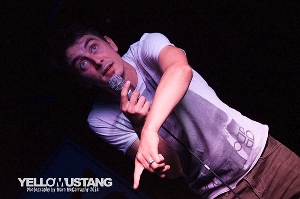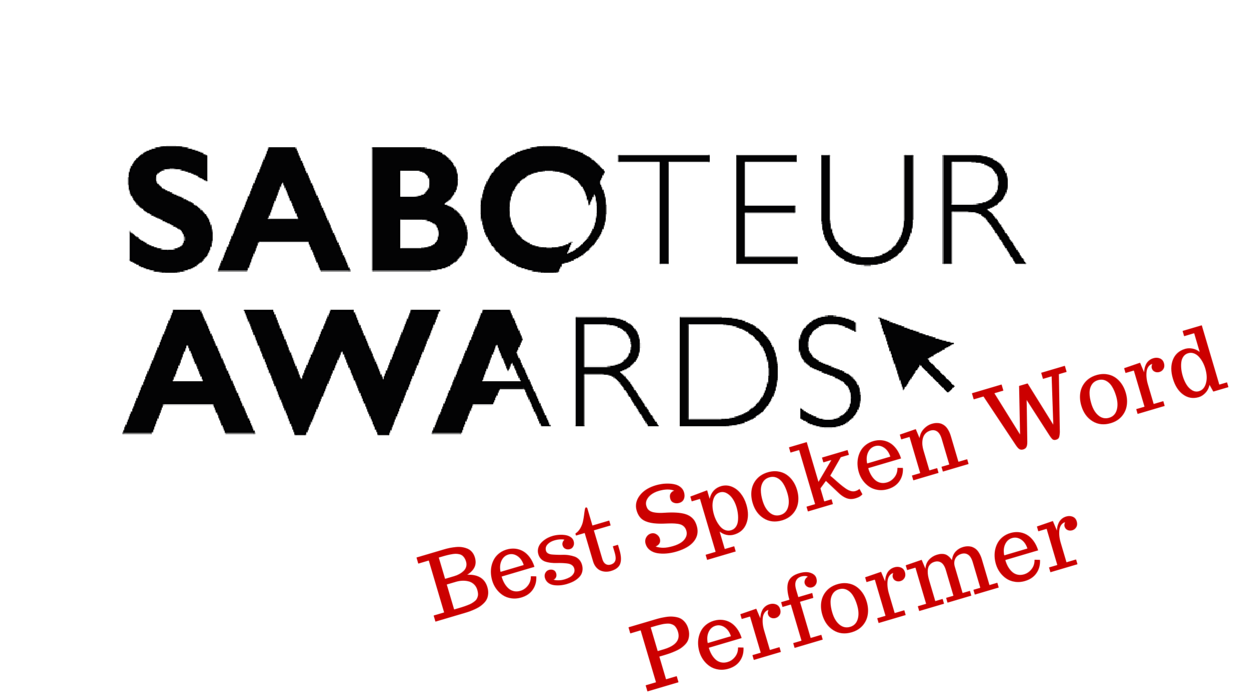Talk / No Talk by Stu Freestone
– Reviewed by James O’Leary –
Stu Freestone is a writer, actor and spoken word poet based in York, shortlisted for “Best Spoken Word Performer” in this year’s Saboteur Awards. His new project, Talk / No Talk, is a spoken word and live soundscape collaboration show. My review will largely be based on the homemade, illustrated pamphlet of five poems that I received, but it would be remiss to ignore that this is the printed form of a live show. Having listened to Stu’s spoken word on SoundCloud, he has all the hallmarks of a performer familiar with the stage: steady cadence, natural voice projection, and clean, confident delivery confirm his skill. His YouTube videos show that the vocal performance is matched by subtlety in visual delivery. His film experience is clear, as he is neither physically over-the-top (as can happen with certain types of slam poetry), nor does he give a straight recitation. He is altogether earnest and compelling. Even on video, he connects enough to create the feeling that he is personally addressing the watcher.
This style is reflected in the work itself, each poem interested in engaging with the reader. The poems tend to begin with questions or declarative statements which invite us into the speaker’s point of view: “What if David Icke was right?” from Astronaut, “It’s funny isn’t it” from Hip Hop Handshake, and “Behind every scar, there is a story” from If You Need Me. Each poem looks to start a conversation, to invite us into the speaker’s world and thoughts, primarily through first person narrative. The language is direct and I can’t help but read it in the cadence of hip hop, line lengths and rhyme schemes tending toward a straightforward, uniform rhythm.
The message seems to take precedence over form, which feels a bit loose overall. When poetic devices are used, the language choices aren’t as rigorously selected as one would hope. The synonyms are a little easy and sentence structure can seem unnaturally manipulated to force a rhyme, such as in the title poem ‘Talk / No Talk’: “and like a flash I’m awake.” “All the questions of life I’d previously avoided, came rushing to meet me and like atoms we collided.”
‘Hip Hop Handshakes’ describes childhood in poignant glimpses, exploring the nature of memory as well as the transition from child to teenager: “Living our lives like Peter Pan and the lost boys,although without a hook this time, just plenty of face paint.” However, this poem would have been much stronger with tighter editing. In trying to impart a message, some ineffective repetition makes it to the final draft: “at the first sight of land you see drop the anchor” is a little clunky, and “So always remember that” just doesn’t work as the end line of a poem. Economy of language isn’t necessarily paramount, but as these are narrative poems, I found myself thinking they could have been much more effective had they started later and finished earlier. For poems that are to be performed, I understand that context and exposition helps a listener understand what is happening straight away, but telling rather than showing is still taking a shortcut.
There is a certain through line to the poems, helping the overall experience coalesce, and there is no shortage of charm here. On the strength of his delivery and the feeling in the work, I would be interested in going to see Stu Freestone live. There is a lot of promise in the writing even though craft and structure are, for now, a little lacking.




